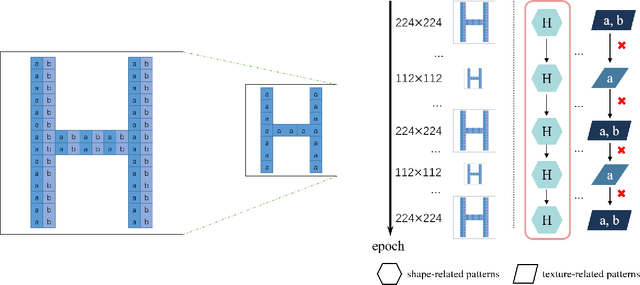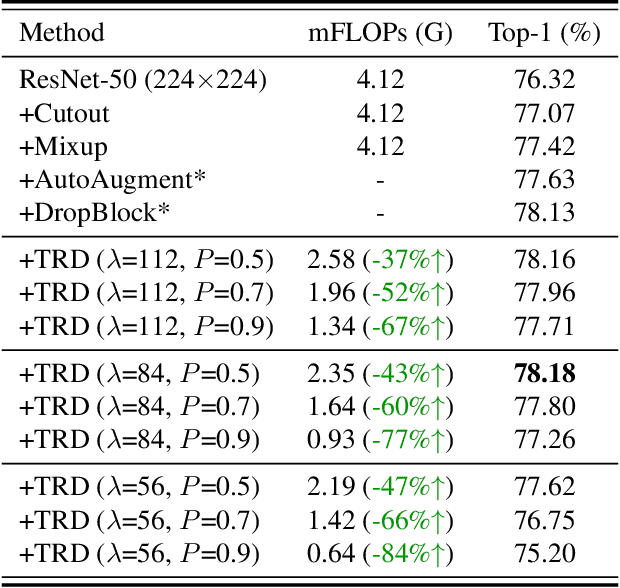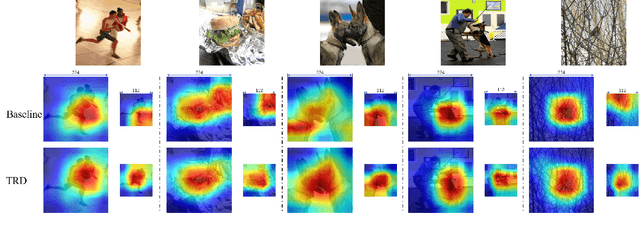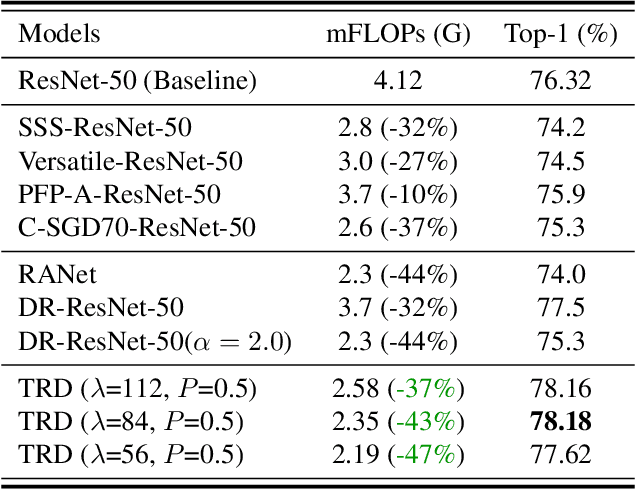Temporally Resolution Decrement: Utilizing the Shape Consistency for Higher Computational Efficiency
Paper and Code
Dec 02, 2021



Image resolution that has close relations with accuracy and computational cost plays a pivotal role in network training. In this paper, we observe that the reduced image retains relatively complete shape semantics but loses extensive texture information. Inspired by the consistency of the shape semantics as well as the fragility of the texture information, we propose a novel training strategy named Temporally Resolution Decrement. Wherein, we randomly reduce the training images to a smaller resolution in the time domain. During the alternate training with the reduced images and the original images, the unstable texture information in the images results in a weaker correlation between the texture-related patterns and the correct label, naturally enforcing the model to rely more on shape properties that are robust and conform to the human decision rule. Surprisingly, our approach greatly improves the computational efficiency of convolutional neural networks. On ImageNet classification, using only 33% calculation quantity (randomly reducing the training image to 112$\times$112 within 90% epochs) can still improve ResNet-50 from 76.32% to 77.71%, and using 63% calculation quantity (randomly reducing the training image to 112 x 112 within 50% epochs) can improve ResNet-50 to 78.18%.
 Add to Chrome
Add to Chrome Add to Firefox
Add to Firefox Add to Edge
Add to Edge